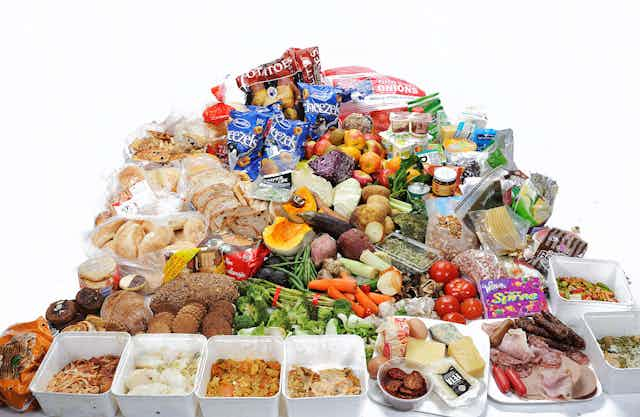This article is to mark Indonesia’s Waste Care Day (Hari Peduli Sampah Nasional) on February 21.
Indonesia is the second-largest contributor of food waste in the world after Saudi Arabia.
Several studies have found more than 60% of solid waste in two Indonesian cities – Surabaya in East Java and Bogor in West Java – is from food.
A significant amount of food waste can lead to global warming as food generates methane gas when it decomposes in the landfill. Methane gas is 25 times more dangerous than carbon dioxide as a greenhouse gas.
As a researcher on food consumption and food waste, I offer the following three strategies for policymakers to reduce food waste in Indonesia.
1. Support and invest in traditional food retailers
Indonesians are generally taught to not waste food.
Almost 84% of respondents in my food consumption and food waste research in Bogor admitted their culture prohibits them from wasting food. There is a popular traditional saying, “Don’t waste rice or else the rice will cry”, that parents tell their children to get them to finish their food.
However, industrialisation, urbanisation and the growing middle-class population have contributed to changes in food consumption patterns. When buying food, consumers are often lured by impulse buying, marketing and “buy one get one free” promotions.
Traditional Indonesian markets and mobile vegetable vendors can offer a solution to reduce the over-purchasing habit.
These types of retailers may help consumers curtail impulse buying by providing seasonal offerings and options to buy food in small amounts.
These markets are also cash-based so they can help consumers stay on budget.

However, grocery purchases at traditional wet markets are declining at a rate of 2% a year in the face of steep competition from modern supermarkets.
Therefore, governments at all levels should promote the revitalisation of traditional markets in their areas. This revitalisation would aim to provide better storage and sanitation infrastructure to improve consumer experience.
President Joko “Jokowi” Widodo has committed to revitalising traditional markets. To date, the initiative has succeeded in revitalising 5,000 large markets and 8,900 village markets.
2. Education in schools and through social media
The importance of not wasting food should be taught in schools.
In North America, many schools and organisations such as the Commission for Environmental Cooperation have developed tools to raise students’ awareness of food waste through various activities and initiatives. Examples include teaching students how to measure food waste through waste audits. Learning to reduce food waste can also be integrated into math or cooking lessons.
Information on food waste can also be delivered through social media and apps to reinforce the value of zero waste and build a collective movement across the archipelago.
One example in Indonesia is the GiFood Food Warriors initiative. During Ramadan, the GiFood Food Warriors use their app to help Indonesians share excess food with others instead of the food going to waste.
3. Innovation and collaboration
From fish feed to compost, many Indonesian companies are popping up with ideas and solutions to transform food scraps into new and useful products.
For example, the Magalarva company has turned food waste into fish feed in the form of black soldier fly larvae.
Indonesia can help these companies thrive by developing a coalition of diverse stakeholders – businesses, academics and the public sector – to collectively tackle the issue of food waste through various avenues.
What’s next
To reduce waste, the Indonesian government has made a commitment to reduce greenhouse gas emissions from waste by 6%. Unfortunately, there has been no update on the progress of this initiative.
For the government to make progress on this commitment, reducing the amount of food waste should also be on its agenda.
However, reducing food waste might not be easy. My recent research indicates that people’s shopping habits in Indonesia are changing and modern supermarkets have made it easier for people to over-consume, thus encouraging them to waste more food.
My research, involving over 300 households in Bogor, indicates that high-income and middle-income people tend to shop in modern supermarkets. Exposed to promotions and driven by the habit of stocking up on food, these households are likely to buy more than they need.
To address this issue, government must work with civil society, industry and educators to come up with effective solutions that can help people to stop wasting food.


